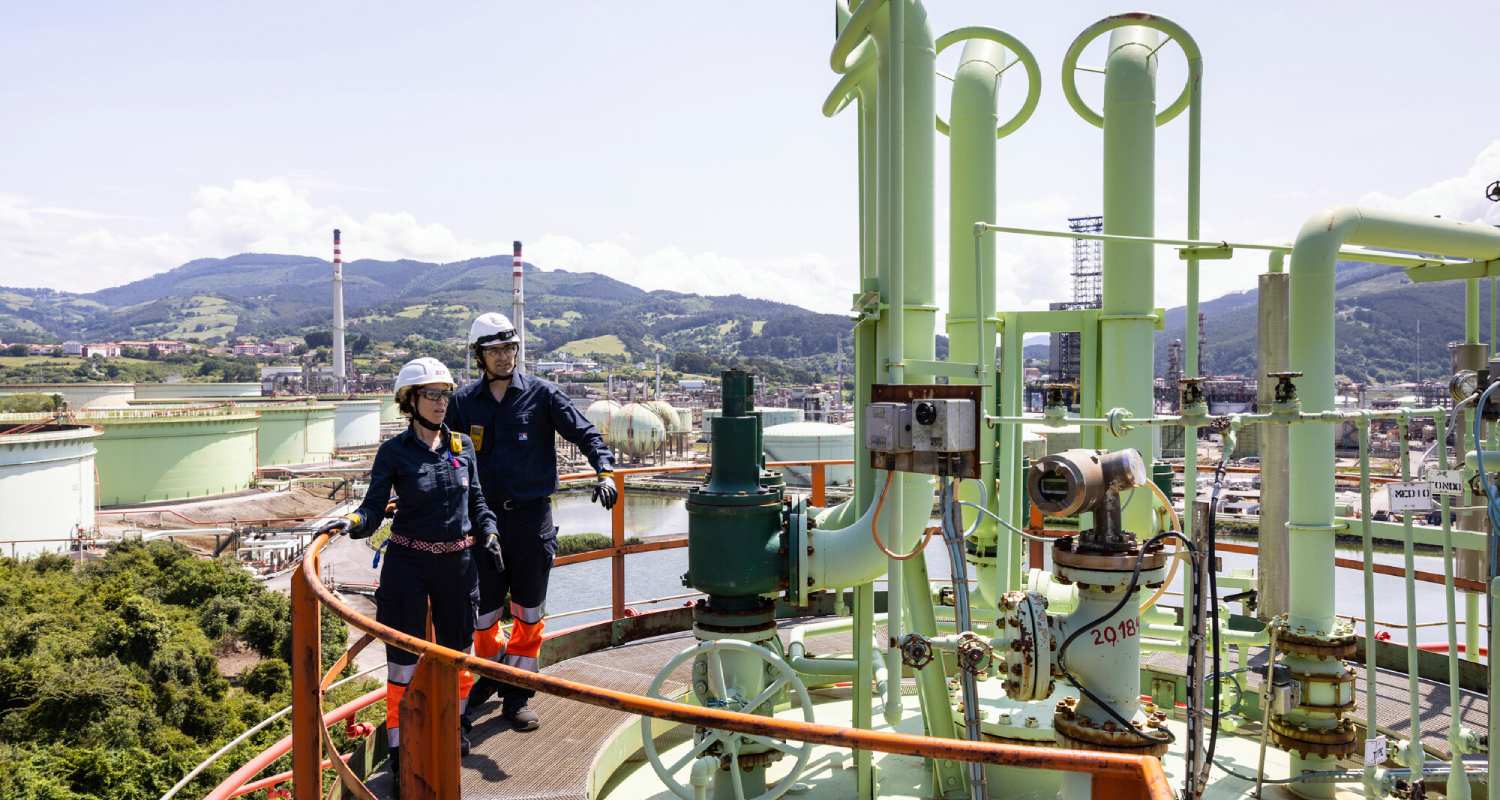
Renewable fuels and gases to power industry
Renewable fuels and gases to power industry
The production of renewable fuels and gases from organic waste is one of the main examples of the transformation of the industry.

Energy transition: An opportunity and a challenge for industrial employment
The industry is transforming its facilities to achieve climate neutrality by the middle of this century, investments that will safeguard jobs and revive this key sector of the Spanish economy.
Ten years ago, the European Commission set out to revitalize the industry and raise its GDP contribution to 20%. A decade later, this goal has still not been achieved: the Eurozone average is 18% and Europe continues to depend on other countries for the supply of key products and components for its economy, such as microchips, semiconductors, electric batteries, or parts for photovoltaic panels.


In Spain, 2.1 million people work in the industrial sector, with salaries that are double the average in the service sector, according to the National Statistics Institute (INE).
The energy transition presents itself as an opportunity to revive industrial activity and, at the same time, to strengthen Europe's strategic autonomy. Throughout the continent, industry is adapting its facilities and building new plants to manufacture products with a low, neutral, or even negative carbon footprint, with investments that will have a pull effect on other areas of the economy.
Furthermore, the transformation of the industry will make it possible to safeguard employment in a sector that is renowned for generating quality work, with higher-qualified, more stable and, above all, better-paid jobs. In Spain, 2.1 million people work in this sector, with salaries that are double the average in the service sector, according to the National Statistics Institute (INE), .
Today, industry is one of the main drivers of the Spanish economy: it generates nearly 40% of national wealth and is responsible for 90% of exports. It is also a sector with a great capacity for innovation, leading private investment in R&D&I in Spain, which will facilitate the implementation of new technologies related to the circular economy and digitalization.
The energy transition offers multiple possibilities to improve the industrial fabric and create new activities. The production of renewable fuels and hydrogen are just two examples of the transformation that the industry is undergoing, which in the coming years will need new professional profiles related to the circular economy or digitalization.
New horizons for the industrial sector

Renewable fuels and gases to power industry
The production of renewable fuels and gases from organic waste is one of the main examples of the transformation of the industry.

In search of new professional profiles
The transformation of industry can be a source of opportunities for new professionals specializing in low-emission technologies.
Industry, a strategic sector for Spain
2.1
million
employees in the sector.
40%
of national wealth.
90%
of exports.
Challenges for transforming the industry
The main challenge facing the industry today is to have a more stable regulatory framework that gives certainty to the investments to be made in the coming years to complete the transformation of the sector. "In the case of renewable fuels," explains Berta Cabello, "we need a stable and inclusive regulation, which admits the different alternatives that exist to decarbonize road transport: electrification, hydrogen and renewable fuels. And that is not happening now in the European Union. Banning the internal combustion engine closes that door while other regions of the world, like the United States, are looking at it more broadly and are going to invest in these fuels."
The main challenge facing the industry is to have a more stable regulatory framework that provides security for the investments to be made in the coming years to complete the transformation of the sector.
Among these countries is Germany, which is advocating the introduction of new exceptions to EU regulations. The federal government has already managed to get the EU to allow the sale of vehicles using only synthetic fuels at the last minute, and is now proposing to extend this exception to biofuels. “We should go further and focus on technological openness,” said Finance Minister Christian Lindner, who announced that he would use fiscal policy to support the development of these alternatives. To start reducing emissions from its 49 million cars, Germany approved in April the sale of 100% renewable diesel at its service stations, bringing the total number of European countries that allow the sale of this type of fuel to 23.
Another challenge is the loss of industrial autonomy. For example, Europe imports about 80% of the components needed to produce solar energy from China. "We are facing a new empire in renewable technologies, which has grown so much industrially that it already dominates the production of photovoltaic technology and in wind we are battling the same thing," assures Juan V. Márquez. "We are a global benchmark, but since 2018 there has been a steady flow of outsourcing in the wind industry, which has closed factories in Spain to go to other markets."
The future "Net-Zero Industry Act" presented by the European Commission proposes to increase the sector's capacity to manufacture products and components related to new technologies, so that Europe can cover at least 40% of its annual needs by 2030. The law is committed to developing technologies such as renewable fuels and gases, electrolyzers, electric batteries, wind and photovoltaic energy, and the capture, storage, and use of CO2, which will play an important role in the growth of the industry in the coming years.
How to choose a college major
In recent years, new options have been added to the traditional college majors in response to the challenges faced by today's society.

What will be the professions of the future?
The new jobs of the future